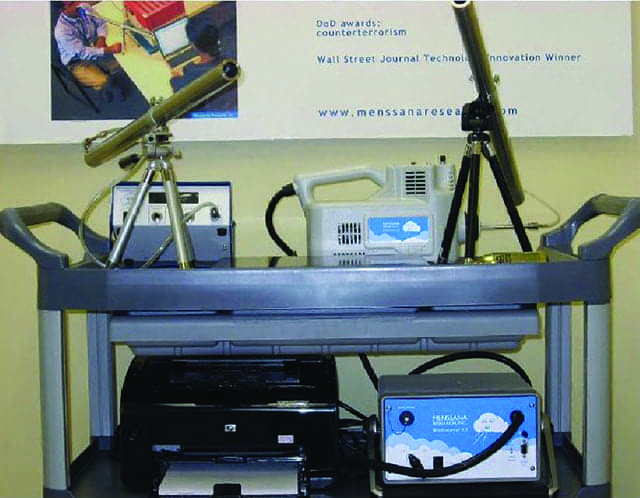This is an extended version of content that appears in the Emerging Technologies feature in the April issue of CLP.
Menssana Research is the leading developer of advanced breath tests for the detection of disease. Early detection of diseases often offers significant benefits: some cancers can be more easily treated if they are detected early and treated promptly.
But early detection often requires an invasive test, which poses challenges to both patients and the healthcare system. A biopsy may be painful, while x-ray radiation is potentially harmful. Most invasive tests are expensive. Researchers have struggled to develop cost-effective, non-invasive tests that can detect disease without causing pain or damage to the body.
Michael Phillips, MD, founded Menssana Research after speculating whether diseases could be detected in their earliest and most treatable stages simply by analyzing breath. Perhaps the least invasive of diagnostic tests, breath testing offers the advantage of accessibility: even the very elderly and the very ill can generally donate a breath sample without inconvenience. But chemical analysis of breath remains technically difficult, keeping breath testing to a minor role in medical diagnosis until recently.
Technical advances at the Menssana Research laboratories have established a new role for breath testing in the early detection of disease. Scientists there have developed a portable breath collection apparatus (BCA) that can collect breath samples for highly sensitive laboratory analysis virtually anywhere. The BCA has been adopted for clinical research studies in hospitals in the United States and Europe.
More recently, Menssana has developed a point-of-care breath-testing system that delivers rapid test results to physicians and patients. BreathLink collects, concentrates, and analyzes a breath sample within minutes, and then uploads the findings via the Web to the company’s New Jersey-based lab. The BreathLink test has received the CE mark, permitting the device to be marketed in Europe for both breast cancer and pulmonary tuberculosis.
In addition, FDA has granted the Heartsbreath test a humanitarian device exemption for use in predicting heart transplant rejection. Intended to be used alongside endomyocardial biopsy, the test may predict the probability of grade 3 rejection in heart transplant recipients who received their transplants in the preceding year.
Menssana founder Michael Phillips, MD, will be presenting the technology at the AACC Emerging Clinical and Laboratory Diagnostics conference in San Jose, April 24–25, 2014. For further information visit Menssana Research at www.menssanaresearch.com.





